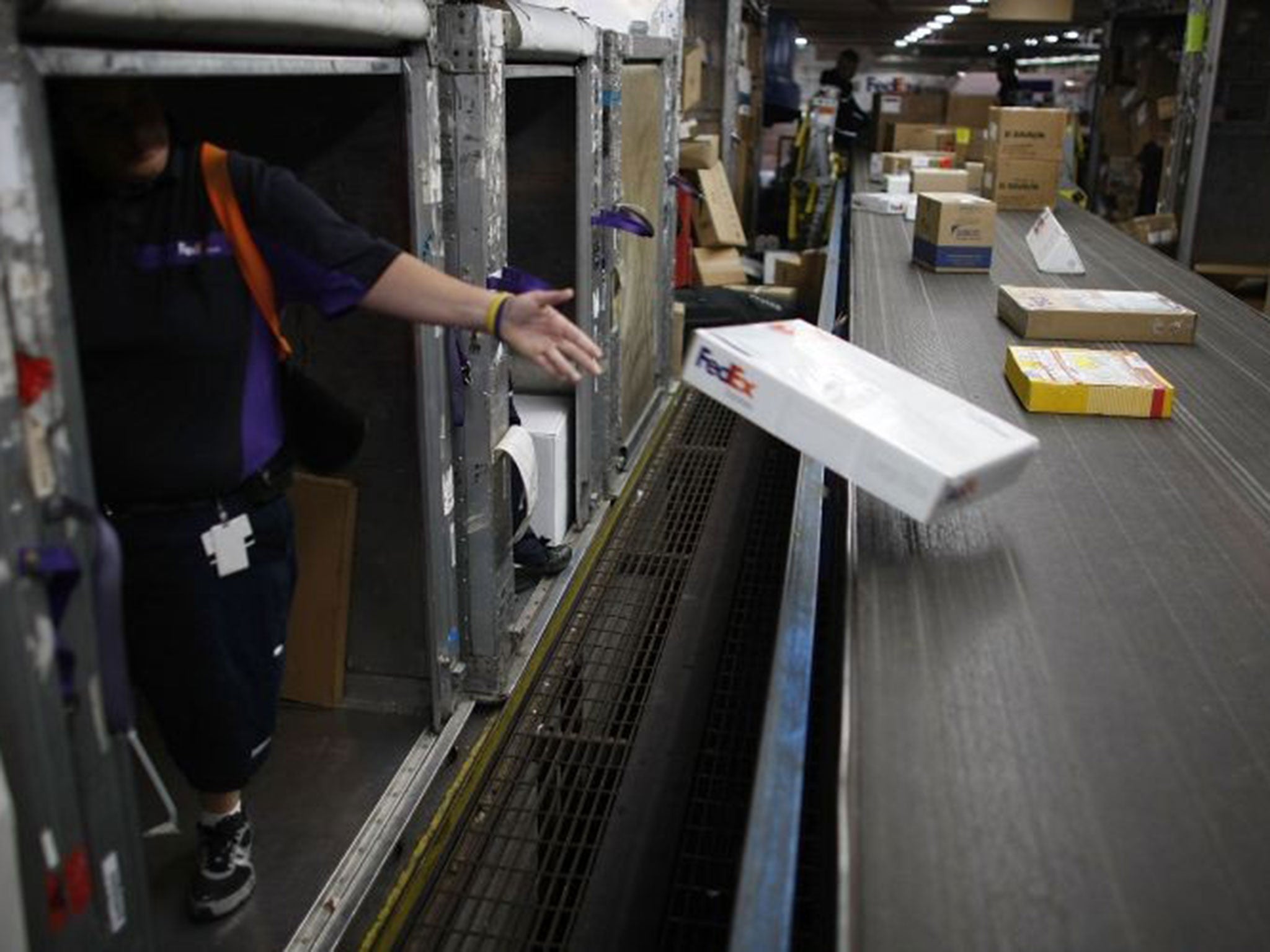FedEx facing drug-trafficking charges over illicit pharmaceuticals
The courier is the latest major US firm to be held to account over its business with online pharmacies

The courier firm FedEx faces drug-trafficking charges after being indicted by a federal grand jury in California, in a case that highlights the growth in illegal online pharmacies selling dubious medication to people without a prescription.
The 15-count indictment accuses FedEx of conspiring in the delivery of illicit pharmaceuticals, including the sleep aid Ambien and the slimming drug phendimetrazine, despite repeated warnings from the authorities.
During the period covered by the indictment, between 2000 and 2010, FedEx is alleged to have adopted special policies governing the dubious deliveries that would prevent its employees being penalised if a pharmacy abruptly closed for business. Prosecutors say the courier firm made some $820m (£480m) by turning a blind eye to the questionable trade.
US Attorney Melinda Haag said: "The advent of internet pharmacies allowed the cheap and easy distribution of massive amounts of illegal prescription drugs to every corner of the United States, while allowing perpetrators to conceal their identities through the anonymity the internet provides. This indictment highlights the importance of holding corporations that knowingly enable illegal activity responsible for their role in aiding criminal behaviour."
Illegal online pharmacies began offering drugs without prescription at least as early as 1998 and have grown to meet burgeoning demand, particularly in the US where patients buy medication online for reasons of convenience and cost. One 2010 estimate suggested the illegal online pharmaceutical industry was worth $75bn. A report from 2013, by the US National Association of Boards of Pharmacy, found up to 50,000 internet pharmacies operating worldwide, 97 per cent of which are thought to be illegal by US and EU standards.
The counterfeit drugs they sell may contain none of the promised active ingredients, or contain incorrect quantities. Some may even contain toxic substances. Marjorie Clifton, the executive director of the not-for-profit Center for Safe Internet Pharmacies (CSIP), says more than 100,000 deaths a year are linked to prescription drugs that have been bought online.
"Whereas in the past people bought lifestyle drugs like Viagra online, there has recently been a rise in the number of prescription drugs bought online that are for either chronic illness or lifesaving medication such as antibiotics, HIV and diabetes medications," Ms Clifton said.
In 2011, Google reached a $500m (£300m) settlement with the US Government after allowing suspect foreign pharmacies to advertise to US customers using its AdWords service. In 2013, the courier firm UPS forfeited $40m (£23m) to the government that it had earned from delivering drugs without prescription. Both companies are now members of the CSIP, set up in 2011 to raise awareness of the problem of unregulated internet pharmacies.
Ms Clifton said the illicit websites, many of them based overseas, were often so sophisticated that they fooled not only patients, but doctors. "Many physicians are simply unaware of the prevalence of these illegal sites and are actually sending their patients to them," she said.
In 2012 and 2013, the CSIP went into partnership with the US Food and Drug Administration and Interpol to carry out Operation Pangea, shutting down thousands of illegitimate pharmacy websites and confiscating tens of millions of dollars' worth of illegal medications. Earlier this year, the operation seized almost 20,000 packages of such drugs at US postal facilities. Deliveries had originated from as far afield as the UK, India, China, Mexico, New Zealand, Laos and Malaysia.
Ms Clifton said the CSIP would welcome the involvement of FedEx in its campaign. The organisation's members already include Microsoft, Facebook, American Express and Visa. In a statement responding to the indictment, FedEx spokesman Patrick Fitzgerald said the firm had "repeatedly requested that the government provide us a list of online pharmacies engaging in illegal activity … So far the government has declined to provide such a list." FedEx transported more than 10 million packages a day, and could not be expected to vet them all, he said. "We are a transportation company – we are not law enforcement."
Subscribe to Independent Premium to bookmark this article
Want to bookmark your favourite articles and stories to read or reference later? Start your Independent Premium subscription today.

Join our commenting forum
Join thought-provoking conversations, follow other Independent readers and see their replies